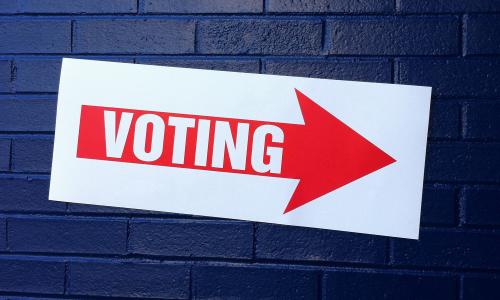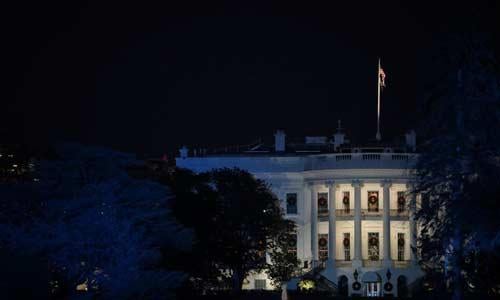NOTE: The following is one of a series of case studies produced by the Union of Concerned Scientists' Scientific Integrity Program between 2004 and 2010 to document the abuses highlighted in our 2004 report, Scientific Integrity in Policy Making.
A major study of climate change's potential consequences for the United States was erased from official government climate science and policy discussions. No reason was officially given, but conclusions of the study, the National Assessment of the Potential Consequences of Climate Variability and Change, did not align well with the Bush Administration's position on climate change. The study, published in 2000, affirmed the reality of global warming and suggested a need for action.
In the years following its publication, references to the National Assessment were oddly almost completely missing from government documents concerning climate change, including the Climate Change Science Program (CCSP)'s 2003 Strategic Plan. Former CCSP senior associate Rick Piltz resigned his position in June 2005 after 10 years of government service in part to protest such obfuscation.1 Piltz said that the Bush administration "directed federal climate science program leaders in the agencies to refrain from any substantive reference to or use of the National Assessment in public statements, reports to Congress, and research planning."2
According to Piltz, early drafts of the CCSP's Strategic Plan had contained numerous references to the National Assessment, which he called "the most comprehensive and authoritative scientifically based assessment to date of the potential consequences of climate change for the United States." These references, Piltz said, were "stripped out" during the review process.3
One man who enforced the banishment of the National Assessment, Philip A. Cooney, then chief of staff of the White House Council on Environmental Quality, was the go-between responsible for ensuring that White House policy was followed at the Climate Change Science Program. Cooney, a lawyer with no scientific training, formerly worked for the American Petroleum Institute and led the oil industry's drive to prevent restrictions on greenhouse gas emissions.4
In addition to the Strategic Plan, Cooney edited several 2002 and 2003 scientific climate change reports. CCSP documents provided by Piltz and the Government Accountability Project to The New York Times show handwritten edits that often increased and at times overstated the level of uncertainty associated with climate science.5 As noted in the New York Times article, the edits produced "an air of doubt about findings that most climate experts say are robust."6
Cooney's edits, for example, added the word "extremely" into an October 2002 draft of a summary of government climate research called "Our Changing Planet" The edited sentence read: "The attribution of the causes of biological and ecological changes to climate change or variability is extremely difficult." In another instance, Cooney deleted a paragraph that projected reductions of mountain glaciers and snowpacks in a report examining the impact of global warming on water availability and flooding. In the margins he wrote that this was "straying from research strategy into speculative findings/musings."
The New York Times story reporting Cooney's edits appeared around the same time that British Prime Minister Tony Blair met with President Bush to urge the United States to take a stronger role in combating global warming. To bolster Blair's argument, scientific academies in 11 countries, including the United States, released a joint letter stating, "The scientific understanding of climate change is now sufficiently clear to justify nations taking prompt action."7
Despite the scientific academies' statement, at the June 8, 2005 daily White House press briefing, spokesman Scott McClellan rebuffed accusations that the Bush administration had actively sought to highlight the uncertainties involved in climate change science and downplay the link between the emission of heat-trapping gases and global climate change. The White House maintained that it is a "normal procedure" for political appointees to edit scientific documents.8
Two days after the original documents showing his edits were released, Cooney resigned.9 Just days later, the Exxon-Mobil Corporation, whose chairman has been an outspoken opponent of efforts to curb global warming, announced that the company had hired Cooney for an unspecified position.
Senate minority leader Harry Reid (D-NV) and Senator Frank Lautenberg (D-NJ) later called for an investigation by the Government Accountability Office into whether Cooney violated laws prohibiting "obstruction of Congress and false statements" in revising the climate reports.10
1. Piltz, R. June 1, 2005. On Issues of Concern About the Governance and Direction of the Climate Change Science Program. Accessed March 8, 2007.
2. Piltz, R. October 8, 2006. The 'Vanishing' National Climate Change Assessment, Part 1: The Administration. Accessed February 15, 2007.
3. Ibid.
4. Revkin, A.C. June 8, 2005. "Bush Aide Softened Greenhouse Gas Links to Global Warming." New York Times. Accessed March 8, 2007.
5. Revkin, A.C. June 8, 2005. Reproductions of Mr. Cooney's handwritten edits (supplemental material to the article cited above). Accessed March 8, 2007.
6. Revkin 2005.
7. Joint science academies' statement: Global response to climate change. June 7, 2005. Accessed March 8, 2007.
8. McClellan, Scott. June 8, 2005. White House Press Briefing. Accessed March 8, 2007.
9. Revkin, A.C. June 10, 2005. "Editor of Climate Reports Resigns." New York Times. Accessed March 8, 2007.
10. Lautenberg, F. June 29, 2005. "Former White House Climate Change Official May Have Violated Federal Law Say Lawmakers." Press release. Accessed March 8, 2007.




